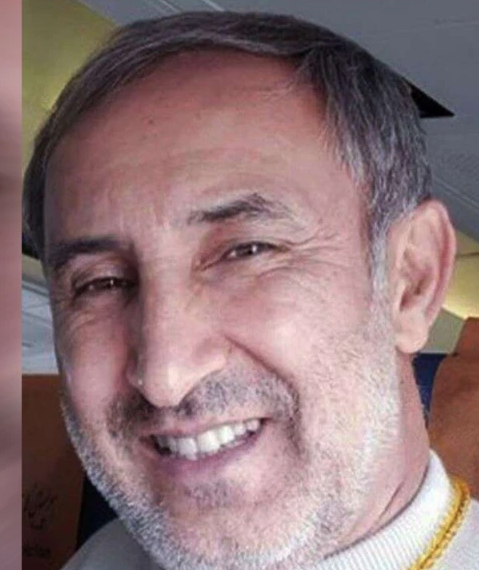August 06, 2021
An Iranian-Canadian who believes he was delivering a message from God when he spray painted homophobic warnings on religious buildings around Saskatoon, Saskatchewan, has been found unfit to stand trial.
Instead, Amir Samuel Bozorgmehr, 37, is now in the hands of the Saskatchewan Review Board a tribunal outside the courts, established under the Criminal Code of Canada that will decide the best way to monitor and treat his mental illness.
“If, after that process, which does not have a time frame as each individual case is different, he becomes fit to stand trial, the file will then be reviewed as to whether we continue with the criminal prosecution at that stage,” Crown Prosecutor Andrew Clements said.
A forensic psychiatrist who testified at the man’s fitness hearing in Saskatoon provincial court said he diagnosed Bozorgmehr with untreated delusional disorder, hallucinogen-induced psychosis disorder and polydrug use disorder.
In May 2020, Bozorgmehr went on a vandalism spree, spray-painting messages like, “The only hope for a sodomite is repentance,” on churches, religious buildings and murals on campus, and the Saskatoon police station. He was caught with orange spray paint and a map with highlighted churches, the court heard.
Bozorgmehr was arrested May 2 for his spray painting. Over the next 11 days, he was released from custody three times and reoffended every time, racking up eight mischief charges including six done “for reasons of bias, prejudice, or hate based on religion.”
Bozorgmehr said he didn’t consider his acts criminal because he was on a special religious mission to warn his “neighbors” of danger, Dr. Mansfield Mela testified at the hearing. He said Bozorgmehr believes he is protected by a higher power and above the court.
The Canada criminal code requires that an accused person understand the nature of the court proceedings and the possible criminal consequences in order to stand trial. Judge Marilyn Gray found Bozorgmehr’s religious delusions a result of untreated mental disorders prevented those legal tests from being met.
“It is my view that although the accused theoretically understands the nature and consequences of court proceedings, his delusions prevent him from applying that theoretical knowledge to himself and the situation in which he finds himself,” Gray said.
She concluded that if Bozorgmehr were allowed to stand trial and defend himself by expounding his revelations in detail his main goal throughout the proceedings “any reasonable observer would be shocked that the court had determined this to be a fair proceeding.”
The court heard Bozorg-mehr grew up in Iran and took schooling around the world, coming to Saskatchewan in 2012 to get his PhD in engineering. He abandoned the program when he came to believe his life had a “higher mission,” he told Mela, providing him with a 555-page book filled with different languages, pictures and religious symbols.
He also said he used psychedelic drugs as “spiritual medicine.”
Fitness, or competency, is a different test than being found not criminally responsible (NCR) in Canada. A fitness hearing focuses on a person’s mental state at the time of the court process, while NCR is about a person’s mental state at the time of the offence.
Bozorgmehr will remain in custody at the Saskatchewan Hospital during the review.
This process was unfolding alongside efforts by the Canadian government to remove Bozorgmehr from the country, but the deportation has hit a snag, said senior provincial Crown Prosecutor Dan Dahl.
“Immigration authorities have advised Public Prosecutions that enforcement processes have been completed for this individual and there is a removal order in place that can be enforced,” Dahl said last year. “However, because there are no diplomatic relations with Iran, a passport at this time cannot be obtained, as this individual has no identification.” As a matter of policy, Iran does not normally accept Iranian nationals deported after being convicted of crimes in other countries.






















